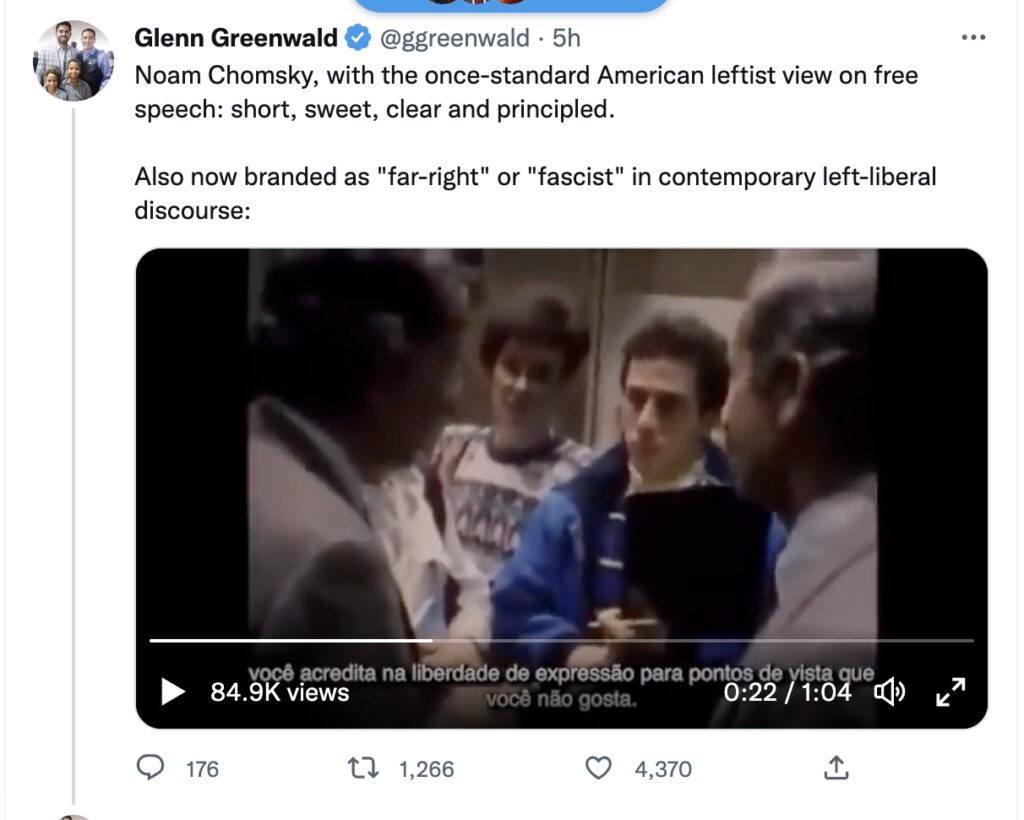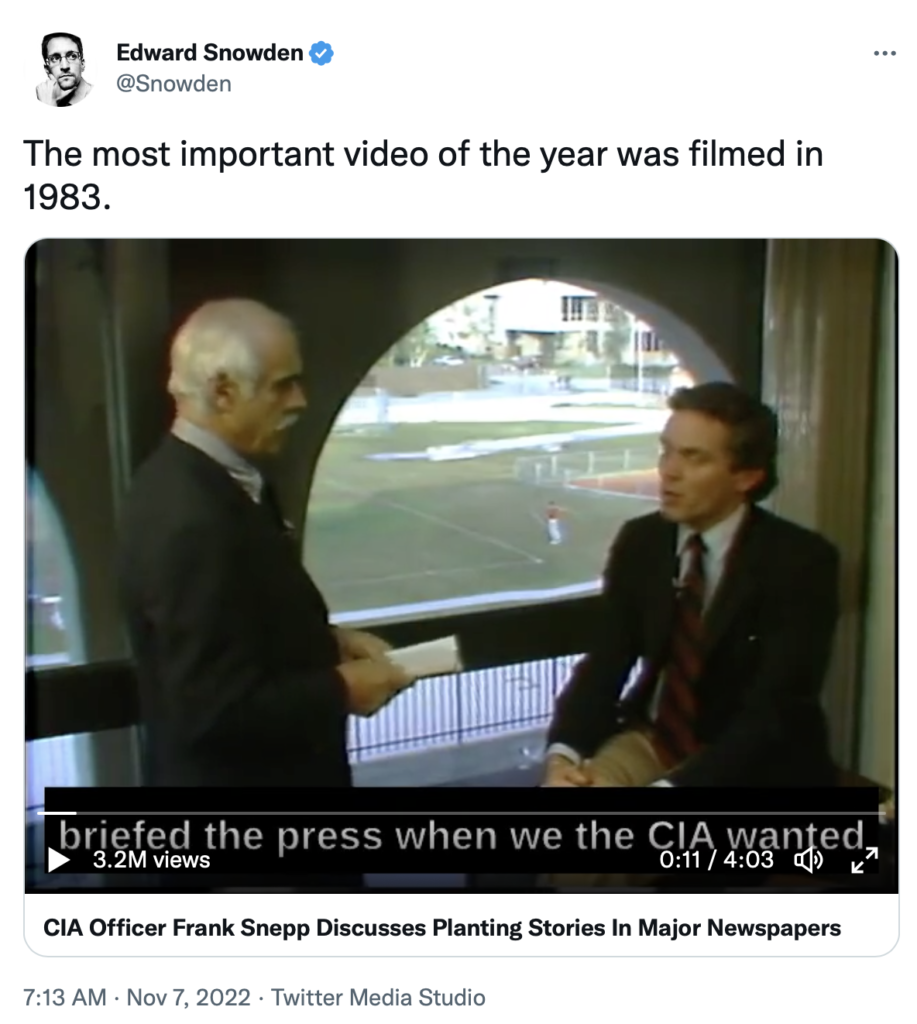Noam Chomsky Explains Freedom of Speech
Chomsky: "I do not think that the state has the right to determine historical truth and to punish because I'm not willing to give the state that right even if they happen . . ."
Unknown man: "Even if they deny that the gas chambers existed?"
Chomsky: "I'm saying if you believe in freedom of speech, you believe in freedom of speech for views you don't like. I mean, Goebbels was in favor of freedom of speech he liked, right? So was Stalin. If you're in favor of freedom speech, that means you're in favor of free speech precisely for views you despise. Otherwise, you're not in favor of freedom of speech. There are two positions we can have on freedom of speech, and you can decide which position you want."
Chomsky: "With regard to my defense of the people who express utterly offensive views, I don't have the slightest doubt that every commissar says, "You're defending that person's views." No, I'm not. I'm defending his right to express them. The difference is crucial, and the difference has been understood outside of fascist circles since the 18th century."
Glenn Greenwald has focused on this issue repeatedly because many people who consider themselves to be "liberal" have abandoned free speech, now embracing the opposite, censorship of things they find offensive and things they don't like. I agree with Greenwald. Many modern so-called liberals have dramatically changed positions on free speech as a stealth maneuver. They won't admit that they formerly embraced wide-open free speech (the version described by Chomsky) and they won't explain why they turned their position upside down.


